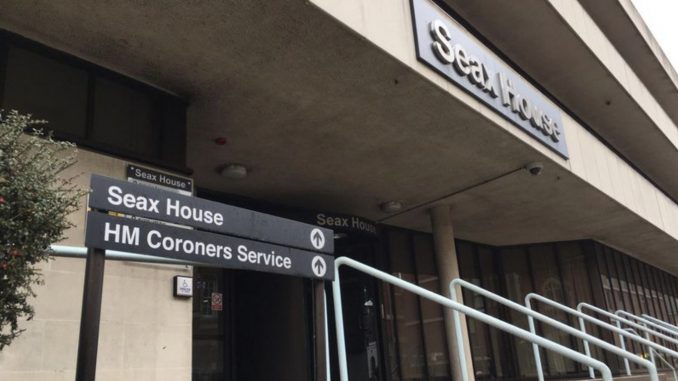
Trust warned if practices continue there is a real risk of future deaths occurring
A mental health patient who died surrounded by empty insulin pens and heavy pain medication would still be alive if the help his partner had been “begging for” been provided, a report has concluded.
Benjamin Stroud had been seen by Essex Partnership University Trust in the weeks leading up to his death on March 19, 2021, at an address in Witham.
But his partner – a nurse who saw him regularly despite them living in separate homes – wanted more help for him.
The trust has now been criticised for failing to discuss his case at his multidisciplinary team (MDT) – the mechanism for organising and coordinating health and care services to meet the needs of individuals with complex care needs – despite his escalating psychosis.
If it had been Mr Stroud, 42, could still be alive, Essex coroner Michelle Brown has concluded.
A trust spokesperson said action to improve communication has “already taken action” and they will “make sure lessons learned are shared across the trust”.
What happened?
Mr Stroud had been sectioned under the mental health act at the beginning of 2021 and treated at the Linden Centre, in Chelmsford.
But around a month later he had taken an overdose of insulin. He did not go to hospital as his partner was able to treat him at home.
However it has now been made clear she wanted psychiatric intervention but that despite “begging” for help, Mr Stroud’s care coordinator did not make any referral to the MDT, despite his worsening state.
A report from Ms Brown has concluded: “A patient safety incident investigation (PSII) report and action plan was completed, and the author of the report attended the inquest to give evidence.
“Mr Stroud’s partner also gave evidence, and it was clear from her account that she had been begging the care coordinator for Mr Stroud to have an appointment with the psychiatrist, which did not occur and from the evidence of EPUT, it was clear that Mr Stroud’s Care Coordinator did not make any referral to the MDT, despite his escalating psychosis, it was also clear from the evidence that none of the conversations with Mr Stroud’s care coordinator were recorded.”
She added: “The evidence in this inquest made it clear that had Mr Stroud’s case had been discussed at an MDT then more help would have been made available to him, that he would have been seen by a psychiatrist and may have prevented his death.”
Mr Stroud had a previous medical history of recreational drugs, including steroids and cannabis, and had been recently diagnosed as insulin dependent diabetic, and had undergone a kidney transplant.
After falling and injuring his back at work, he developed a dependence on pain medication, some of which were purchased on the internet.
His mental health issues increased as a result of his psychical health problems.
Mr Stroud had already been admitted from Accident and Emergency under the Mental Health Act to the Linden Centre between January 16 and 24, 2021.
He was released to the specialist psychosis service at The Gables in Braintree and had been seen by a psychiatrist but this appeared to be the only time he was seen by a psychiatrist.
On February 22, 2021, he took an overdose of insulin.
His partner spoke to him on the evening of the March 18 2021, he seemed to be low around his job, a job which he did not like, the report noted.
Mr Stroud was found dead at his home address the following day and around him were empty blister packets of medication and empty insulin pens. Blood samples post mortem found evidence he had taken hallucinogenic drugs.
A post mortem determined the cause of death was by multiple drug toxicity. It was unclear if he had taken an overdose of insulin due to the time lag between his death and the post mortem.
Ms Brown added: “On the evidence from EPUT and the patient safety incident investigation (PSII) report it was clear that the care coordinator makes the decisions as to whether to refer a case to the MDT.
“In this case, no entries were made around the rational for none referral and no explanation was provided at the inquest.
“This is not the first time this issue has arisen at an inquest and the reliance on a care coordinator to make a clinical decision and no written explanation provided on any clinical notes documented appears to be a way of working.https://get-latest.convrse.media/?url=https%3A%2F%2Fwww.essexlive.news%2Fnews%2Fessex-news%2Fwitham-mental-health-patient-would-6657905&cre=bottom&cip=33&view=web
“If these practices continue there is a real risk of future deaths occurring.”
Paul Scott, Chief Executive at Essex Partnership University NHS Foundation Trust, said: “We send our condolences to the family, loved ones and friends of Benjamin Stroud and would like to thank the Coroner’s service and Mr Stroud’s family and friends who took the time to assist with the enquiries.
Credit Essex Live
